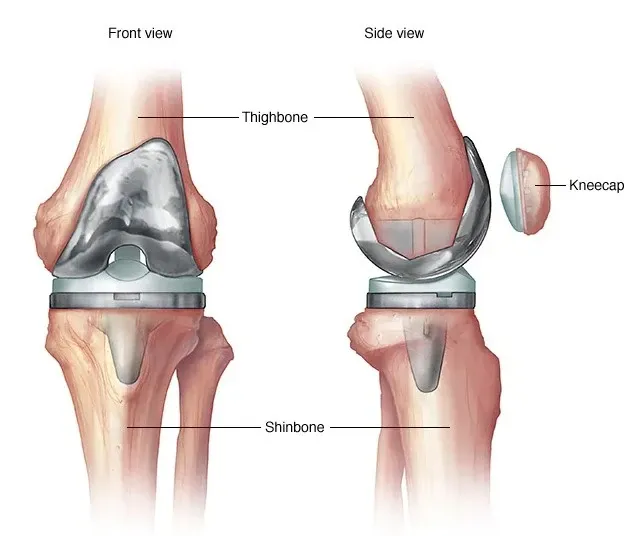Could Diabetes Elevate Infection and Blood Clot Risks After Knee Replacement Surgery?

Synopsis
Key Takeaways
- Diabetes increases the risk of complications after knee replacement surgery.
- Patients with diabetes face a 43% higher risk of joint infections.
- Insulin-treated diabetics are 60% more likely to experience adverse events.
- Deep vein thrombosis (DVT) poses a significant threat post-surgery.
- Further studies are needed to improve preoperative risk management for diabetic patients.
New Delhi, July 10 (NationPress) A recent study has revealed that diabetes not only contributes to joint discomfort that can severely affect your knee but also heightens the risk of infections and blood clots following knee replacement surgery. This research was conducted by a team of scientists from India.
Over 50% of individuals with diabetes experience coexisting arthropathy—a condition impacting the joints—and may eventually require hip or knee arthroplasty (joint replacement surgery).
The investigation, spearheaded by researchers from Vardhman Medical College & Safdarjung Hospital in New Delhi, indicates that diabetes is a major risk factor for joint infections after total knee arthroplasty (TKA), which is a well-established and effective procedure for patients suffering from advanced knee arthritis.
Another significant postoperative concern linked to TKA is deep vein thrombosis (DVT) or blood clots, which can lead to pulmonary embolism—a blockage in the pulmonary arteries of the lungs caused by a blood clot.
This condition can lead to increased morbidity and mortality rates.
“The presence of diabetes considerably influences post-TKA results, resulting in elevated complication rates and a negative impact on physical function and quality of life,” stated the researchers, including those from Indraprastha Apollo Hospitals and Fortis C-Doc Hospital.
“Diabetics who require insulin treatment are at a 60% increased risk of perioperative adverse events. Poor blood sugar control around the time of TKA can worsen outcomes,” they noted in their paper published in the Journal of Orthopaedics.
The findings, which are based on systematic reviews and meta-analyses, indicate that individuals with diabetes undergoing TKA are at a 43% higher risk of periprosthetic joint infection (PJI) and a 45% increased likelihood of experiencing DVT.
Hospital readmission rates were significantly higher, with a 28% increase noted. Patients with insulin-treated diabetes showed a 60% greater incidence of perioperative complications.
The researchers emphasized the need for further rigorous studies to define standardized criteria for glycemic control and to explore the mechanisms that lead to increased risks, which would aid in better preoperative risk assessment and management strategies for diabetic patients undergoing TKA.










